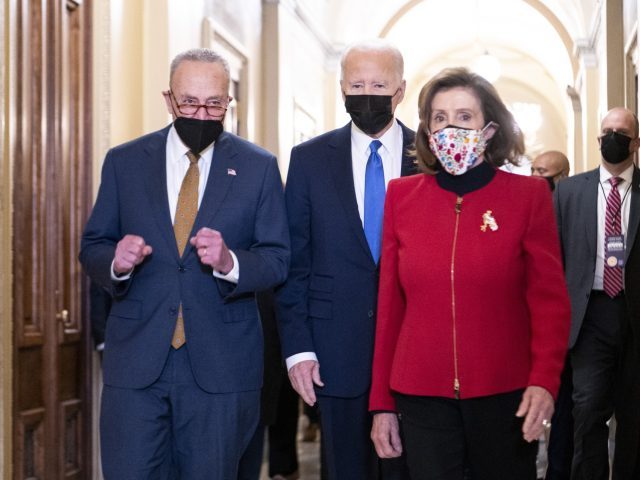Owners of small businesses see bleak times ahead for the U.S. economy.
The net share of owners expecting better business conditions six months from now fell to minus 61 percent in June, the lowest score in 48 years, the National Federation of Independent Business (NFIB) said Tuesday. Expectations have worsened every month this year.
“As inflation continues to dominate business decisions, small business owners’ expectations for better business conditions have reached a new low,” said NFIB chief economist Bill Dunkelberg. “On top of the immediate challenges facing small business owners including inflation and worker shortages, the outlook for economic policy is not encouraging eighter as policy talks have shifted to tax increases and more regulations.”
The net percent of owners who expect real sales to be higher fell 13 points to a net negative 28 percent, which the NFIB describes as a severe decline.
Every single component of the NFIB’s small business optimism index declined in June. The headline index dropped 3.6 points to 89.5, the sixth consecutive month below the 48-year average of 98.
The outlook and current conditions faced by small businesses reflect a growing tension in the economy. On the employment side, the market remains very tight, with businesses still hiring, wages rising, and a near-record number of owners saying they have openings they cannot fill. The NFIB said difficulty in filling positions is acute in construction, manufacturing, services, and the retail sector. It is lowest in finance and agriculture. The current level of openings overall is 20 percentage points above the historical average.
Fifty percent of all owners reported job openings they could not fill in June, down one point from the all-time high hit in May and September. Forty percent have openings for skilled workers and 22 percent have openings for unskilled workers. A seasonally adjusted 19 percent say they are planning to create new jobs in the next three months, down seven points since May but still at a level the NFIB considers elevated. Ninety-four percent of owners trying to hire reported few or no qualified applicants.
“Doesn’t sound like a recession, from the employment side,” the NFIB notes.
When it comes to production and sales, however, the situation sounds very much like a recession. More firms are reporting sales declines and expect sales to keep falling. As Bank of America economists noted over the weekend, high gasoline and food prices now appear to be acting as a tax on the rest of the economy, forcing families to cut back on purchases of things not considered necessities. Only three percent of businesses think now is a good time to expand, the NFIB survey showed. Inflation and the percent of owners raising their prices are at levels not seen since the recessions of the early 1980s, the NFIB said.
A net negative two percent of owners plan inventory investment in the coming months, down from a positive one percent in May. That could weigh on economic growth, as inventory investment is one of the most volatile components of GDP. Only five percent of owners view current inventory stocks as too low, down three points from May. Thirty-nine percent of owners recently reported a significant impact on supply chain disruptions, 30 percent reported a moderate impact, and 23 percent report a mild impact. Just six percent report no impact.

COMMENTS
Please let us know if you're having issues with commenting.